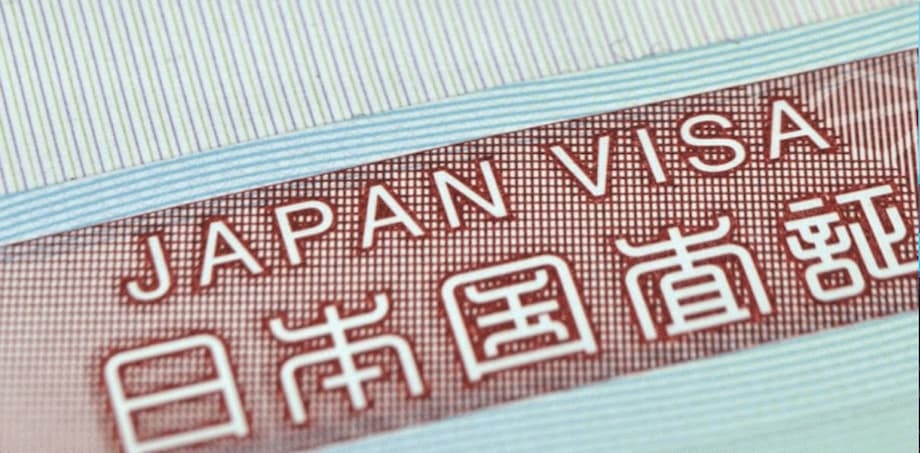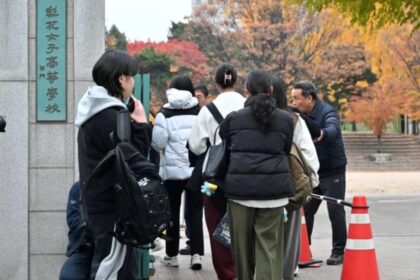Japan’s Digital Nomad Visa: A New Era for Remote Workers
Japan, renowned for its blend of ancient tradition and cutting-edge technology, has officially joined the global movement to attract remote workers. In 2024, the Japanese government launched its highly anticipated Digital Nomad Visa, opening the doors for international freelancers, entrepreneurs, and remote employees to live and work in Japan for up to six months. As the world of work continues to evolve, this visa positions Japan as a top destination for digital nomads seeking both professional opportunities and cultural immersion.
- Japan’s Digital Nomad Visa: A New Era for Remote Workers
- Who Can Apply? Understanding Eligibility for Japan’s Digital Nomad Visa
- Application Process: Step-by-Step Guide
- Key Benefits and Limitations of Japan’s Digital Nomad Visa
- Living in Japan as a Digital Nomad: Practical Tips and City Highlights
- Comparing Japan’s Digital Nomad Visa to Other Countries
- Frequently Asked Questions
- In Summary
This comprehensive guide explores the eligibility criteria, application process, benefits, limitations, and practical tips for making the most of Japan’s Digital Nomad Visa in 2025. We’ll also compare Japan’s program to other countries and discuss what makes the Land of the Rising Sun uniquely attractive for remote workers.
Who Can Apply? Understanding Eligibility for Japan’s Digital Nomad Visa
The Digital Nomad Visa is designed for high-earning remote professionals who wish to experience life in Japan without traditional employment sponsorship. However, the eligibility requirements are notably strict compared to similar programs worldwide.
Citizenship and Country Restrictions
Applicants must be citizens of one of 49 countries or territories that have both a visa waiver agreement and a tax treaty with Japan. This includes the United States, Canada, the United Kingdom, Australia, New Zealand, most European Union countries, South Korea, Singapore, and Hong Kong. The full list is available on the Ministry of Foreign Affairs of Japan website.
Dependents (spouses and children) can accompany the main applicant if they are from one of 70 specified countries, provided they meet health insurance and documentation requirements.
Income Threshold: Who Qualifies Financially?
Japan’s Digital Nomad Visa is aimed at high earners. Applicants must prove an annual income of at least 10 million Japanese Yen (JPY), which is approximately $65,000 to $68,000 USD depending on exchange rates. This threshold is among the highest globally for digital nomad visas, reflecting Japan’s desire to attract financially stable professionals who can contribute to the local economy.
Acceptable proof of income includes:
- Tax payment certificates
- Income certificates
- Employment or business contracts
- Bank statements
Remote Work Requirement
Applicants must work remotely for a company or clients based outside Japan. This includes:
- Freelancers with foreign clients
- Employees of overseas companies
- Entrepreneurs running businesses registered outside Japan
Local employment or taking gigs with Japanese companies is strictly prohibited under this visa.
Health Insurance and New TB Screening (2025 Update)
Private international health insurance is mandatory, with coverage of at least 10 million JPY for medical costs, including death, injury, or illness. This requirement applies to both the main applicant and any accompanying family members.
Starting April 1, 2025, applicants must also submit a Tuberculosis (TB) screening certificate. The screening must be conducted at an approved medical institution in a designated country, and the certificate is valid for 180 days. This new regulation aims to enhance public health and aligns with Japan’s broader efforts to monitor health risks among foreign nationals.
Other Requirements
- Valid passport with at least six months’ validity and two blank pages
- Completed visa application form with a recent passport photo
- Proof of accommodation in Japan (hotel reservation, rental agreement, etc.)
- Clean criminal record (increasingly requested, especially for longer stays)
Application Process: Step-by-Step Guide
Applying for Japan’s Digital Nomad Visa involves several steps. While the process is straightforward, attention to detail is crucial to avoid delays or rejection.
1. Gather Required Documents
- Visa application form (downloadable from the Japanese embassy or consulate website)
- Valid passport
- Passport-sized photo
- Proof of income (tax returns, payslips, contracts, bank statements)
- Proof of remote employment or freelance work
- International health insurance policy
- TB screening certificate (from April 2025)
- Proof of accommodation in Japan
- Marriage or birth certificates for accompanying family members
- Clean criminal record certificate (if requested)
2. Certificate of Eligibility (COE): Optional but Helpful
While not mandatory, obtaining a Certificate of Eligibility (COE) can streamline the visa process. The COE is issued by Japan’s Immigration Services Agency and demonstrates that you meet the visa requirements. It can speed up processing at the embassy or consulate and upon arrival in Japan, but does not guarantee visa approval.
3. Submit Your Application
Applications can be submitted:
- In person at the nearest Japanese embassy or consulate
- Online (for eligible countries and regions)
Check with your local Japanese diplomatic mission for the latest submission methods and requirements.
4. Pay the Visa Fee
The visa fee is typically around 3,000 JPY (about $20 USD), but may vary by country. Payment instructions will be provided by the embassy or consulate.
5. Wait for Processing
Processing times vary by location and individual circumstances, but generally range from one week to three months. Applying at least three months before your intended travel date is strongly recommended. The embassy or consulate may request additional documents or information during this period.
6. Receive Your Visa and Prepare for Arrival
Once approved, you will receive your visa sticker in your passport. Make sure to bring all supporting documents when entering Japan, as immigration officials may request to see them.
Key Benefits and Limitations of Japan’s Digital Nomad Visa
Japan’s Digital Nomad Visa offers a unique opportunity for remote workers, but it also comes with important restrictions. Understanding both is essential for planning your stay.
Benefits
- Live and work in Japan for up to six months: Experience Japanese culture, cuisine, and daily life while maintaining your remote job.
- Family inclusion: Spouses and children can join, provided they meet health insurance and documentation requirements.
- No Japanese income tax: As long as your income is sourced from outside Japan and your stay is under one year, you are not considered a tax resident. However, you will pay a 10% consumption tax on goods and services in Japan.
- Access to advanced infrastructure: Japan offers reliable high-speed internet, efficient public transport, and world-class amenities.
- Networking opportunities: Japan’s vibrant tech and innovation sectors provide excellent chances to connect with local and international professionals.
- Safety and quality of life: Japan is consistently ranked among the safest countries in the world, with a low crime rate and high standard of living.
Limitations
- Non-renewable and short-term: The visa is valid for six months and cannot be extended. You must leave Japan for six months before reapplying.
- No path to residency or citizenship: The visa does not grant a Residence Card or lead to permanent residency or citizenship.
- Banking and housing restrictions: Visa holders cannot open Japanese bank accounts, sign long-term rental contracts, or register at city hall. Short-term accommodation (hotels, serviced apartments, or Airbnb) is recommended.
- Dependents’ limitations: Spouses and children cannot work or attend school as full-time students while in Japan on this visa.
- Strict eligibility: The high income requirement and country restrictions make the visa inaccessible for many remote workers.
Living in Japan as a Digital Nomad: Practical Tips and City Highlights
Japan’s appeal for digital nomads goes beyond its visa program. The country offers a rich tapestry of experiences, from bustling metropolises to tranquil countryside, all supported by modern infrastructure.
Cost of Living
Japan’s cost of living varies by city. In 2024, the average monthly expenditure for digital nomads was around 166,773 JPY (about $1,100 USD), though this can range from $1,500 to $3,800 depending on lifestyle and location. Tokyo is the most expensive, while cities like Kyoto, Fukuoka, and Hiroshima offer more affordable options.
Popular Cities for Digital Nomads
- Tokyo: The capital offers endless entertainment, coworking spaces, and networking events, but at a premium price.
- Kyoto: Famous for its temples and traditional culture, Kyoto provides a quieter, more affordable lifestyle.
- Fukuoka: Known for its startup scene, beaches, and relaxed atmosphere.
- Osaka: Vibrant nightlife, excellent food, and a friendly local community.
- Hiroshima and Okinawa: Great for those seeking a slower pace and access to nature.
Internet and Workspaces
Japan boasts some of the fastest and most reliable internet in the world. Coworking spaces, cafes, and public libraries are abundant in major cities, making it easy to find a productive environment.
Cultural Etiquette
Understanding Japanese customs is key to a smooth experience. Punctuality, politeness, and respect for hierarchy are highly valued. Learning a few basic Japanese phrases and observing local manners will go a long way.
Best Time to Visit
The cherry blossom (sakura) season, from late March to early May, is a highlight for many visitors. However, prices and crowds peak during this period, so early planning is essential.
Comparing Japan’s Digital Nomad Visa to Other Countries
Japan’s Digital Nomad Visa stands out for its high income threshold and short duration. Here’s how it compares to other popular destinations:
- Portugal, Spain, Greece, Italy, Croatia: These European countries offer digital nomad visas with lower income requirements (typically $2,000–$3,500/month) and longer stays (up to one year, often renewable).
- Malaysia, South Korea, Philippines: Other Asian countries have launched similar programs, but Japan’s income requirement is among the highest.
- Dubai (UAE), Panama, Costa Rica, Thailand: These countries offer varying durations, income thresholds, and tax advantages. Some allow for easier family inclusion or paths to residency.
Globally, over 60 countries now offer digital nomad visas, reflecting the growing demand for flexible work and travel opportunities. Japan’s program is best suited for high-earning professionals seeking a short-term, immersive experience in a technologically advanced society.
Frequently Asked Questions
Can I extend my stay or switch to another visa?
The Digital Nomad Visa is non-renewable. After six months, you must leave Japan for at least six months before reapplying. If you wish to stay longer or work for a Japanese company, consider other visa options such as the Highly Skilled Professional (HSP) Visa, Business Manager Visa, or Student Visa.
Will I pay Japanese taxes?
Digital nomads on this visa are not considered tax residents unless they stay over one year. You will not pay Japanese income tax on foreign-sourced income, but you are subject to a 10% consumption tax on purchases in Japan. US citizens and some others may still have to file taxes in their home country.
Can my spouse or children work or study in Japan?
No. Dependents cannot work or enroll as full-time students while in Japan on the Digital Nomad Visa.
What happens if my application is rejected?
Common reasons for rejection include incomplete documentation, insufficient income, or not meeting country eligibility. You can reapply after addressing the issues or consider alternative visa options.
Is the Digital Nomad Visa a path to permanent residency?
No. The visa does not grant residency status or lead to citizenship. For long-term stays, explore other visa categories.
In Summary
- Japan’s Digital Nomad Visa allows remote workers from 49 eligible countries to live and work in Japan for up to six months.
- Applicants must prove an annual income of at least 10 million JPY (about $65,000–$68,000 USD) and have private health insurance.
- New in 2025: A Tuberculosis (TB) screening certificate is required for all applicants.
- The visa is non-renewable and does not grant residency status, but family members can accompany the main applicant.
- Visa holders cannot open Japanese bank accounts, sign long-term leases, or work for Japanese companies.
- Japan offers a safe, technologically advanced environment with excellent infrastructure and cultural experiences.
- Compared to other countries, Japan’s program is best for high-earning nomads seeking a short-term, immersive stay.
- Careful preparation and early application are essential for a smooth process.












